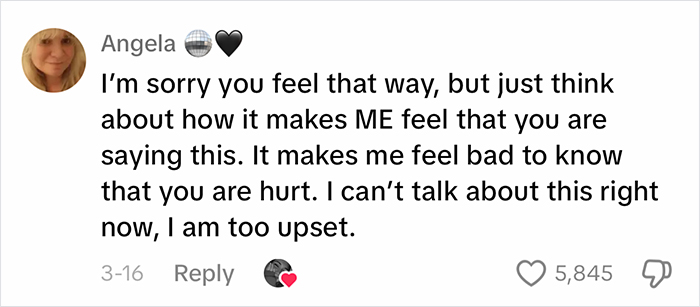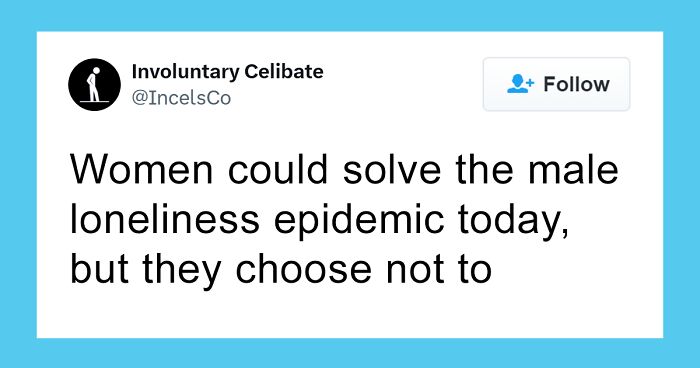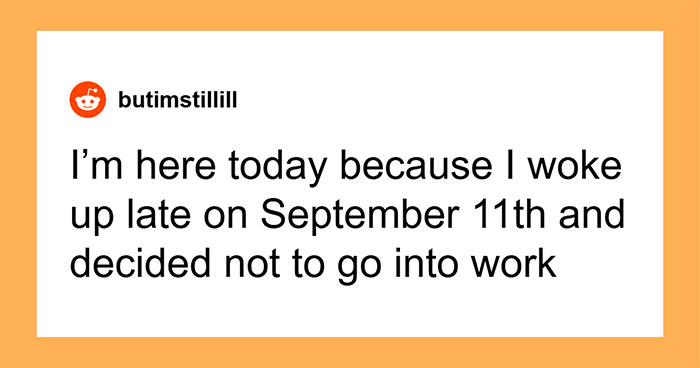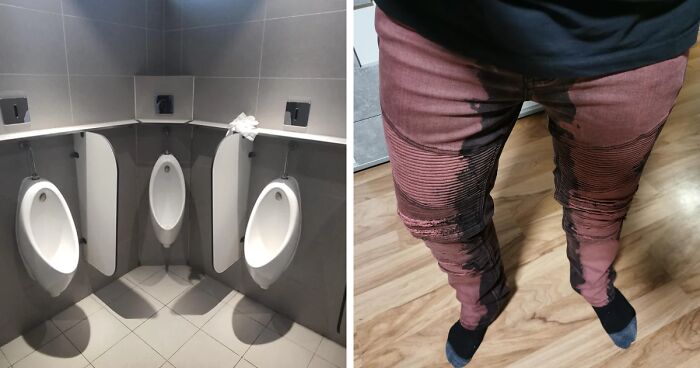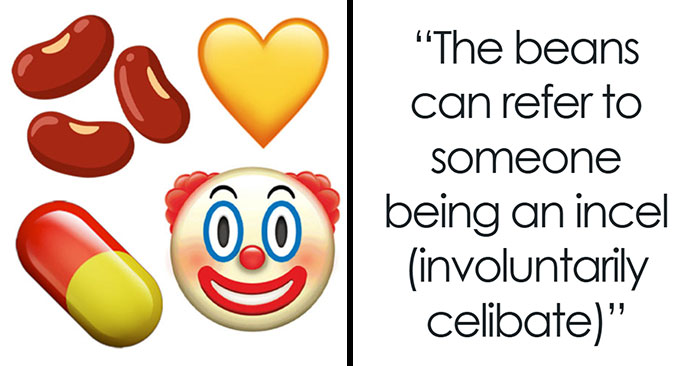
Women Share This Collection Of 30 Ridiculous Male Apologies: “Sorry I Can’t Read Your Mind”
Nobody’s perfect, and everyone messes up from time to time—it’s only human. But a huge part of being a decent person is taking responsibility for your mistakes, learning from them, and also offering an apology if it’s needed. Though, truth be told, not everyone’s good at owning up to what they’ve done—they either get defensive or their ego gets in the way.
Internet user Alexandra (@alexccarterr) went massively viral online after inviting everyone to pretend that the comment section of her post is how guys apologize. Many of the responses she got were hilarious, eerily accurate, and sparked a wider discussion about apologies in general. We’ve collected some of the best comments to share with you. Keep scrolling to read them.
Alexandra's online post was viewed over 17.7 million times and received more than 184.1 thousand comments
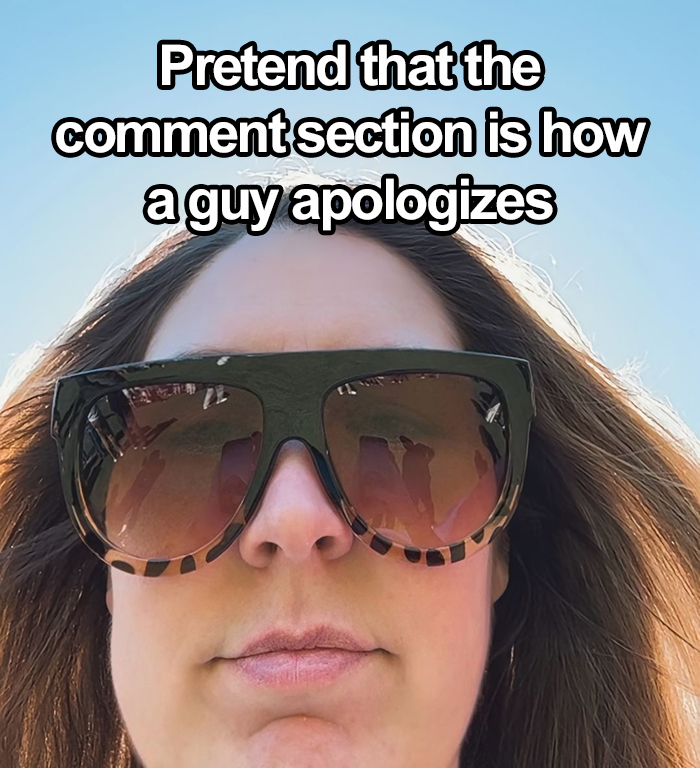
This post may include affiliate links.
How else was I meant to take it? Think about what you said and how y0oud feel if someone splaid it to your, want me to ask your mum?
If you knew this, why did you even do this whatever that would make me mad?? 🙄
It would be an understatement to say that Alexandra’s post was popular. It was a huge success and literally reached millions of people around the globe. It just goes to show how much a relatable topic with room for humor really resonates with people.
At the time of writing, her post was viewed 17.7 million times on TikTok. What’s more, it got more than 1.9 million likes and 184.1 thousand comments. Bored Panda has reached out to Alexandra via Instagram for further comment about the popularity of her post, and we’ll update the article as soon as we hear back from her.
This is my ex-wife. She never once apologized to me. She would just list every thing I did wrong from the beginning of our relationship.
The Harvard Medical School notes that it’s still important to apologize when you’ve hurt or angered someone, even if you don’t believe what you said or did was bad. The same goes for situations where you believe you’re fully in the right and the other person is completely in the wrong: an apology can go a long way.
It’s also important to let go of your ideas about who’s right and wrong in the situation and to put yourself in the other person’s shoes. Understanding another person’s experiences is a core part of emotional intelligence, which, in turn, lies at the foundation of healthy and productive relationships.
If you shut up for five minutes I'll tell you whats on my mind
Naturally, an apology doesn’t really matter if it’s not genuine. If you don’t mean it, why bother saying ‘sorry’ at all? When your apology is genuine, not only do you acknowledge your responsibility for your actions, but you also validate the other person’s (hurt) feelings.
In short, a real apology shows not only that you’re sorry and that you care about the other individual but that you’re also going to make amends and avoid similar mistakes in the future.
Psychiatrist and apology expert Dr. Aaron Lazare explained that good apologies have four elements.
First, you have to acknowledge the offense and confirm that your behavior was unacceptable. One potential pitfall to avoid here is the use of vague or evasive language. You should not word your apology in a way that minimizes your offense or the victim’s level of hurt.
Secondly, you should take the time to explain exactly what happened. However, you have to balance things delicately here. You want to offer an explanation without seeming like you’re excusing your behavior.
With that in mind, the Harvard Medical School points out that sometimes the best strategy is to say that “there is no excuse.”
I have been this guy. I have apologized, I have tried to come to a solution on how to avoid messing up again, but I'm still getting yelled at. I really don't know what I can do at this point, and I just want the barrage of verbal abuse to stop. But there's really nothing I can say, I just have to sit there and take it.
The third element of a truly good apology is to express remorse. In short, if you really regret your decision and feel ashamed, you should speak up. The last element is offering to make amends.
This is fairly straightforward if you’ve physically damaged someone’s things or property; you offer to pay to get it repaired or replace the item. However, when you’ve hurt someone’s feelings, you should acknowledge the pain they felt while promising to do better moving forward.
Sorry. No Brownie points for you. (Brownie points are an imaginary social currency, which can be acquired by doing good deeds or earning favor in the eyes of another, often one's spouse.)
So much passive aggressiveness. It's the worst! "I am sorry I ruined the evening, I hope I can make it up to you". OR "What can I do to get things back on track so that our evening doesn't end like this?" Maybe the answer is nothing btw, and you have to accept that. People sometimes need to process their feelings. FFS!! Open communication is so much better than this nonsense. This whole series is triggering some kind of PTSD from past relationships.
Reporting on the book ‘Sorry, Sorry, Sorry: The Case for Good Apologies,’ by Marjorie Ingall and Susan McCarthy, NPR states that there are six and a half steps to making great apologies.
For one, you should say that you’re actually sorry, not that you’re devastated or that you regret something. Furthermore, you should be specific about what it is you’re apologizing for.
If he's saying this, then your behavior is at question. It points to you always talking down to him, blaming every problem, regardless of cause, on him, and treating him like he's the whole reason anything bad happens. You are the problem in this relationship, and if he's smart he drops you like a bad habit.
Ok we can talk about it at work. I'll be there at 10. In fact it's a good time for me to. Make sure there's a chair next to your desk
Next, you want to take ownership of your behavior, avoid making excuses, and explain why your mistake won’t happen again in the future. You should also make reparations for your mess-up.
The last (half of a) step when apologizing is to genuinely listen to the person you’ve hurt so they can have their say.
Sometimes that is a valid reaction, if it's a pattern of behavior kick him out as its emotional blackmail p
According to Ingall, using the word ‘regret’ is all about how you feel while ‘sorry’ is about how the other person feels. In other words, it’s vital to “keep the other person’s feelings at top of mind.”
A genuine apology can be very powerful even if it comes late, helping people heal and move on.
My ex-husband was a professional narcissist so obviously he was never ever wrong. Even when I could prove myself 100% correct he would twist things to make it look like I was in the wrong. He never said he was sorry (because in his mind there was nothing to say sorry about). His way of apologising was to buy me an expensive gift. Or when he'd finished shouting, stamping, throwing things around and smashing things up I would leave the room and then he would call out in a really cheerful voice, "Do you fancy going to the cinema?" Or "Shall we go out to a restaurant? I'll take you a club later."
This has absolutely nothing to do with the male gender, I have heard it just as many times from the female gender as well.
My ex-husband was a professional narcissist so obviously he was never ever wrong. Even when I could prove myself 100% correct he would twist things to make it look like I was in the wrong. He never said he was sorry (because in his mind there was nothing to say sorry about). His way of apologising was to buy me an expensive gift. Or when he'd finished shouting, stamping, throwing things around and smashing things up I would leave the room and then he would call out in a really cheerful voice, "Do you fancy going to the cinema?" Or "Shall we go out to a restaurant? I'll take you a club later."
This has absolutely nothing to do with the male gender, I have heard it just as many times from the female gender as well.

 Dark Mode
Dark Mode 

 No fees, cancel anytime
No fees, cancel anytime 










